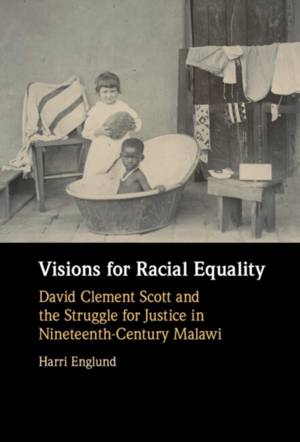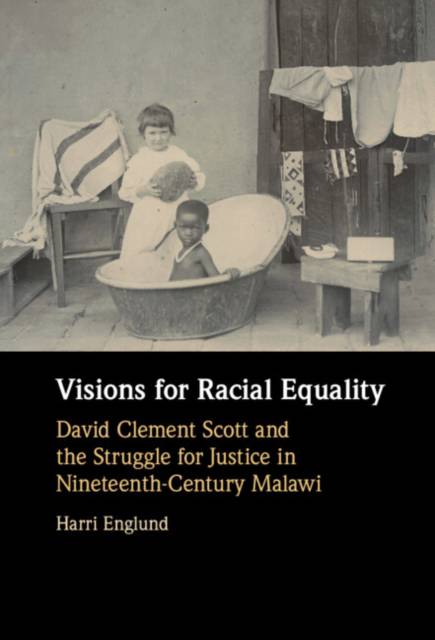
- Afhalen na 1 uur in een winkel met voorraad
- Gratis thuislevering in België vanaf € 30
- Ruim aanbod met 7 miljoen producten
- Afhalen na 1 uur in een winkel met voorraad
- Gratis thuislevering in België vanaf € 30
- Ruim aanbod met 7 miljoen producten
Zoeken
Visions for Racial Equality
David Clement Scott and the Struggle for Justice in Nineteenth-Century Malawi
Harri Englund
Hardcover | Engels
€ 144,45
+ 288 punten
Omschrijving
Focusing on David Clement Scott, the head of the Church of Scotland mission in Malawi, who came to see Europeans as learners in Africa, this innovative book narrates the rise and demise of a unique vision for racial equality in nineteenth-century Africa. By immersing himself in the vernacular language and institutions, Scott developed a theology of reversals to pursue justice in race relations. It set him on a collision course with the Church, colonial government and the White commercial interests spearheaded by Cecil Rhodes. Harri Englund shows how Scott's struggle for justice was as much epistemic as political and spiritual - a vision for the future in which White and Black would thrive in their mutual recognition as co-knowers. From linguistic translation to conflicts over land and taxation, from slave trade to personal intimacies, Visions for Racial Equality weaves a rich tapestry of themes in the life and times of a little-known visionary.
Specificaties
Betrokkenen
- Auteur(s):
- Uitgeverij:
Inhoud
- Aantal bladzijden:
- 294
- Taal:
- Engels
Eigenschappen
- Productcode (EAN):
- 9781316514009
- Verschijningsdatum:
- 17/02/2022
- Uitvoering:
- Hardcover
- Formaat:
- Genaaid
- Afmetingen:
- 152 mm x 229 mm
- Gewicht:
- 603 g

Alleen bij Standaard Boekhandel
+ 288 punten op je klantenkaart van Standaard Boekhandel
Beoordelingen
We publiceren alleen reviews die voldoen aan de voorwaarden voor reviews. Bekijk onze voorwaarden voor reviews.











